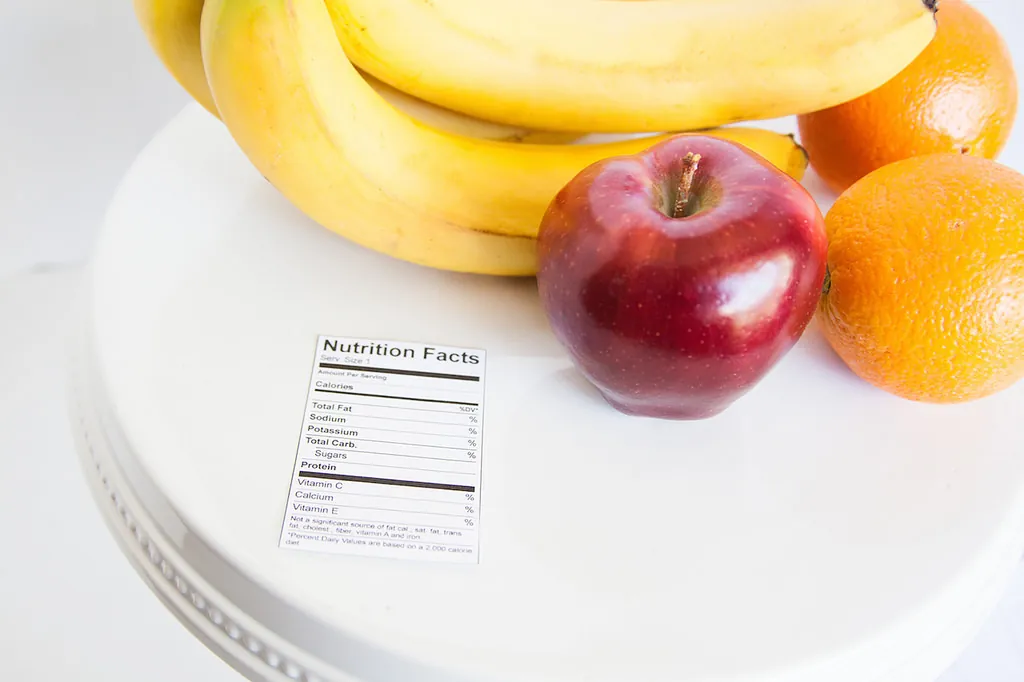Blog
10 Thing I Learned About Food from U.S. Top Ranked Dietitians
By Ashley TenBrink, Recent Arizona State University Nutrition Student
I just read a really great article that was previously published in the Wellness section of U.S. News, titled “10 Things Dietitians Wish They Could Tell Their Younger Selves About Food”. Writer, Keri Gans, interviewed her professional peers and compiled ten segments of very sound advice.
I was really drawn to the concept of this article, “what dietitians wish they could tell their younger selves” because I believe prevention can be the best medicine.

My mom has always emphasized to me the importance of not re-inventing the wheel. Yes, we can learn from making mistakes, but when possible, why not absorb the wisdom that comes from someone who has already been there and done that. By doing this we can learn more quickly and have a better chance at being prosperous in whatever we set out to do.
At this time in my life, I have the ability to make decisions that will lay a solid foundation for my future. As I have mentioned before, I believe that health and nutrition can act as a springboard for success in all areas of a person’s life. That is why I am thrilled to share with you what I learned from these dietitians!
- The first concept, presented by Elisa Zied, registered dietitian nutritionist and author of Younger Next Week: “Drink more water.”
I love that this was number one on the list, not just because it also ranks in my 4 major keys to unlocking your health, but because it is often so easily overlooked! Zied says that she would make water her number one go-to drink because of its “ability to hydrate, eliminate waste, moisturize the skin, and protect the body’s tissues from injury, aid in digestion and fill us up before meals.”
- Second: “What you eat affects how you look”, says Lisa Drayer, registered dietitian nutritionist and author of The Beauty Diet.
Oh, how true this is! As someone who struggled with moderate to severe acne for more than 12 years, I can more than relate to this concept! Limiting my intake of processed sugars has cleared my skin like never before!
Drayer says she would have focused less on external beauty treatments and focused more on the nutrients that can benefit your skin, hair, and nails.
- Third on the list, advice from Lisa R. Young, registered dietitian nutritionist in private practice, author of The Portion Teller Plan and adjunct professor of nutrition at New York University: “Don’t diet.”
Did you read that and think, “What?! A nutritionist advising me not to diet?” However, her advice is psychologically sound. I am a big believer in focusing on what you “can” eat, instead of what you “can’t”. I feel that a person develops a “scarcity mindset” when they attempt to demonize and avoid certain foods or food groups. When we have a scarcity mindset we end up feeling deprived and desperate, and eating healthy becomes unsustainable.
Embracing nutritious foods, paying attention to food portions and enjoying the variety of what I could eat is what helped me overcome the binge eating disorder that haunted me for so long!
- Moving on to number four: “Learn to cook.”
Needless to say, I am going to have to spend some more time on this one.
Kathleen M. Zelman, registered dietitian nutritionist, and director of nutrition at WebMD, stresses the importance and value of sharing the love and joy that comes from preparing dishes with friends and family.
I want nothing more than to share happiness and value with people around me, so I am going to tackle this with a little more zeal in the weeks to come.
- Joan Salge Blake, registered dietitian nutritionist, clinical associate professor at Boston University and author of Nutrition and You brings us our fifth tip: “Get more sleep.”
Yes, yes, and yes! I agree whole heartedly, even though it is so hard for me to do! Even as I write this article it is almost 11:00 p.m. at night. I long for more hours in a day and just love staying up late working on projects and waking up early to go walking with my dog, Mari.
The problem with this scenario, as Blake explains, is that research correlates sleep deprivation with higher levels of the hormone ghrelin, which stimulates hunger. Research also shows that being tired lowers levels of the hormone leptin, which suppresses appetite.
Why make maintaining weight harder for ourselves? Is that extra hour or two worth being “hangry” all day?
- Coming up with number six is Tara Collingwood, registered dietitian nutritionist and sports dietitian in Orlando, Florida, who advises us to: “Be a food snob.”
I don’t know if your parents were the type that made you eat what they set in front of you, or if you were spoiled (um, I mean “well taken care of”) like me, and got to choose what you ate at almost every meal, but I could get behind this tip.
Collingwood says that “Food is meant to be enjoyed and life is too short to eat something that isn’t fantastic and worth the calories, or that’s packed with good nutrition.” I agree with this. We get to make the choice of what we put into our bodies.
However, Collingwood also mentioned, “Deciding in the first bite whether it’s worth it or not to continue eating.” I have a slight problem with this because I do not like to waste food or money. If I made a bad choice then that’s on me, I own it, eat it, and try to do better next time.
- Number seven brought to us by Jackie Newgent, registered dietitian nutritionist, culinary nutritionist and author of The All-Natural Diabetes Cookbook: “Toss out the scale.”
Keeping it real and relatable, Newgent says “weight is just a number on a lifeless piece of equipment! If your jeans start getting tight, go play more or take longer bike rides.’”.
While I agree with the overall premise here, especially adding in more movement and play, I think too much or too little of anything can be a problem. I do not think it is a good idea to weigh or measure yourself every day, however, I think body stats can be a useful benchmark for setting and achieving health and body composition goals. These goals just need to be realistic and productive. Stat taking sessions should also be limited and taken at pre-determined points to track progress.
- Barbara Baron, registered dietitian nutritionist and family meal specialist in New Jersey has one of my favorite tips on the list: “Choose nutrient-dense foods.”
Nutrient density is defined as the amount of nutrient value (including vitamins, minerals, and fiber) divided by the energy content (number of kilocalories).
For instance, a glass of soda is high in calories but low in nutrient value. Soda is not nutrient dense, even though it is calorie dense. Fresh spinach, on the other hand, is a nutrient dense food because its nutritional value is high while the amount of calories in spinach is relatively low. Spinach is very nutrient dense.
This may be an extreme comparison, but it illustrates the idea. If you choose nutrient dense food you can give more value to your body while consuming fewer calories.
- Next, on the list: “Cut the low-calories.” says Patricia Bannan, registered dietitian nutritionist and author of Eat Right When Time Is Tight, for the ninth piece of advice.
If you’re wondering if I favored this tip, you are right! Bannan says she wishes she would have focused more on the quality of the ingredients in her food choices, even if that meant eating a small amount of higher-calorie “real” foods as well as nutrient-dense foods.
An example of this would be eating nuts or avocado. These foods are high in calories, but they are real, natural and contain healthy-fats. Bannan says the low-calorie foods she now chooses to consume are naturally lower-calorie foods such as fruits and vegetables.
- Finally, coming in at number ten: “Stop striving for perfection.”
Ellie Krieger, registered dietitian nutritionist, host of “Ellie’s Real Good Food” on public television and award-winning cookbook author says, “Don’t strive for perfection in the way you eat or in your body image. There is no such thing! Instead, honor and respect your body and enjoy food in a way that supports all it does for you.”
So well said! We are so lucky to be given the chance to experience this life in the body that we have. Whatever place you may be at in your own journey, you can embrace where you are at today!
Don’t get down if you’re not where you think you need to be, embrace the journey and the transformation that is happening both on the inside and the outside of you. Pick one of the ten things mentioned in this article and implement that today. Continue to implement it this upcoming week, and stick with it until it becomes a habit and you find consistency. Then add another one of the ten tips next week and so on until you’re on your way to the healthiest you can be!
If you like this article:
- Body Breakdown: How we Process Nutrients
- Improve your Skin with these Five Nutrition Tips
- Are you Getting Enough Protein?
















